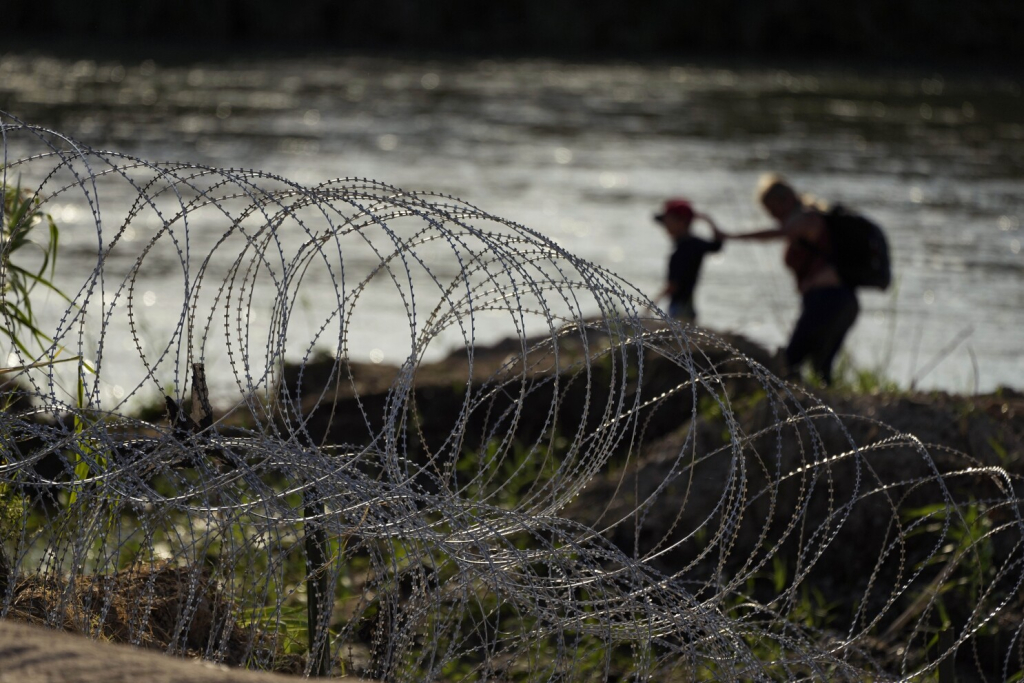
By Kimberly James; WBAP and KLIF News, Dallas, Texas.
DALLAS – (WBAP/KLIF) – A fresh report indicates Mexico’s cartels have developed a new and faster way to make money from human trafficking; using tunnels beneath the border and a further system of drainage tunnels and sewers to ferry “VIP” migrants unseen beneath the ground.
Borderreport.com indicates the so-called “VIP” packages for migrants to enter the U.S. in this new manner run up to an additional $15,000, in addition to other services with “coyotes”, or guides. Cartels are said to provide a code to “VIP migrants”, to identify the cartel paid. It would appear until the tunnels beneath the border are discovered, or activity underneath the ground level is discovered, cartels now have several new routes to make even more money servicing migrant’s illegal border crossings. Borderreport.com estimates cartels now make 70% of their money from human trafficking; drug and other smuggling continues as well.
Migrants who sign up and pay up receive instructions via an app; the experience is reported to cost an additional $6,000 to $15,000 depending upon the route and level of services, exploiting a mind-boggling 300 miles of tunnels, storm drains and sewers to continue the trek – into and throughout portions of the Southwestern U.S. Further, it’s estimated in just one month’s time, at least one of several cartels are smuggling at least 1,000 migrants through these tunnels every month.
As widely and long reported, it’s alleged members of Mexico’s National Guard, local police and immigration officials receive bribes from the cartels to allow these and other smuggling operations.
Borderreport.com notes a new trend of migrant smuggling is also emerging; a “guideless group”, it reports, wherein cartels send migrant groups underground and without a guide to cross the border using GPS technology. Migrants are reported to be given a phone loaded with an app that includes a walking map detailing routes from start to emergence again at ground level, and can alert the migrant groups to increasing numbers of federal agents that may pop up. At the end point, the migrant group would ostensibly be picked up and at times, taken to a “stash house” before further transit – at best.
American and Mexican officials, sadly, find these stash houses can be points of further extortion, demanding the families of the migrants quickly offer thousands of dollars more, upon threat of torture, maiming, rape and murder. Stash houses exist across America in cities and neighborhoods of all persuasions; activities are kept under wraps; windows are usually covered, vehicles typically enter a closed garage to unload or load migrants; quiet and undetectable in most instances. One of the only indications of stash house activity, if migrants are allowed outside to any degree, may be frequently changing faces as migrants arrive and then are moved along.
This week, 13 Central American migrants held for this type of smuggling ransom or extortion were reported tortured, burned, forced to drink toilet water and raped at a stash house in Juarez, Mexico; just across the border from El Paso. Two minors were reported among the migrants rescued, and authorities are investigating the possibility at least two migrants were murdered following torture at that location. United States Homeland Security is said to have provided the tip, and worked with Chihuahua state police in the rescue of the 13. Two women and four men were arrested in connection with the alleged crimes. Several of the rescued migrants remain hospitalized.
Stash houses are used as migrant “way stations” by cartels near the border in Mexico, and after they are ferried across the border and through the United States related to their destinations. Stash houses are also known as notorious locations for forced removal of cell phones and identity paperwork of migrants upon arrival, where conditions of food and care are minimal at best, and deadly at worse; helpless to escape or help themselves in any way; environments in which abuse to varying and deadly degrees is common.
Investigation continues.
(Copyright, All Rights Reserved, WBAP/KLIF 2024)




